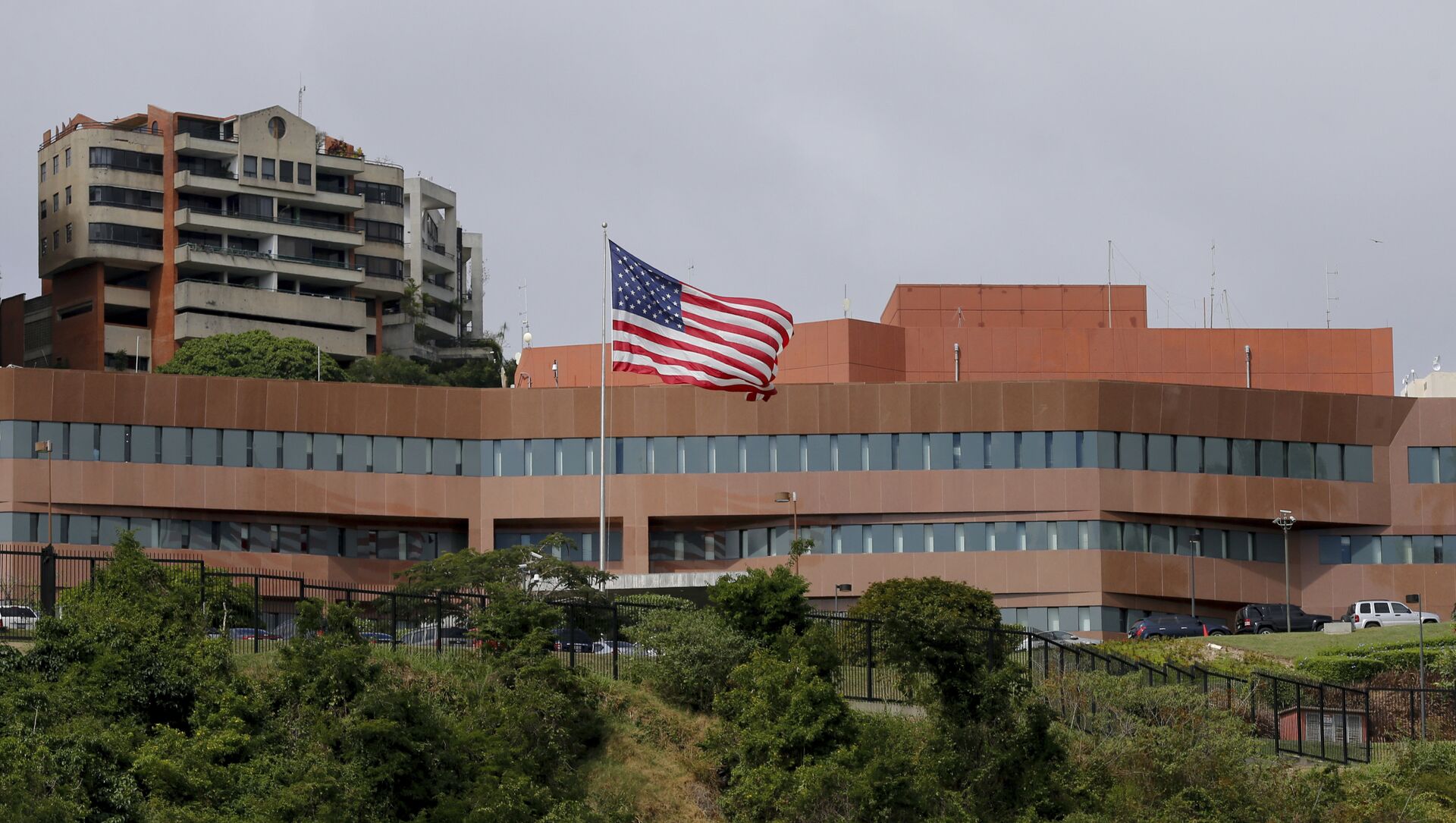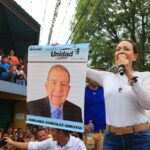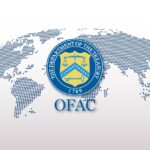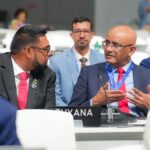
A US flag flying outside the US Embassy in Caracas, Venezuela, in January 2019, weeks before the breaking of diplomatic relations between both countries after the launching of the failed US "regime change" operation to oust President Nicolás Maduro. Photo: Fernando Llano/AP/File photo.






